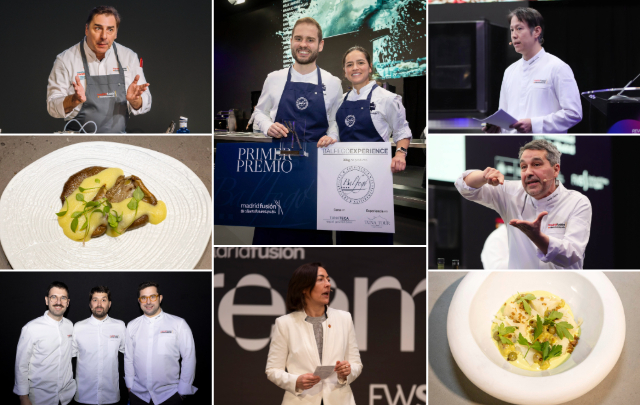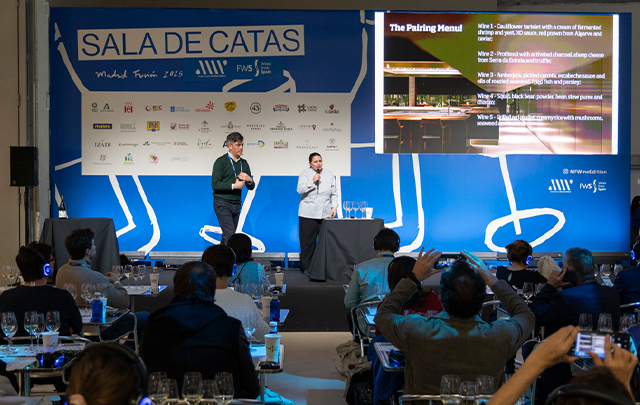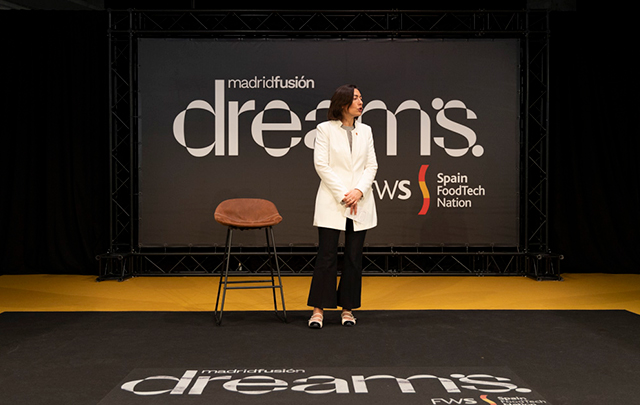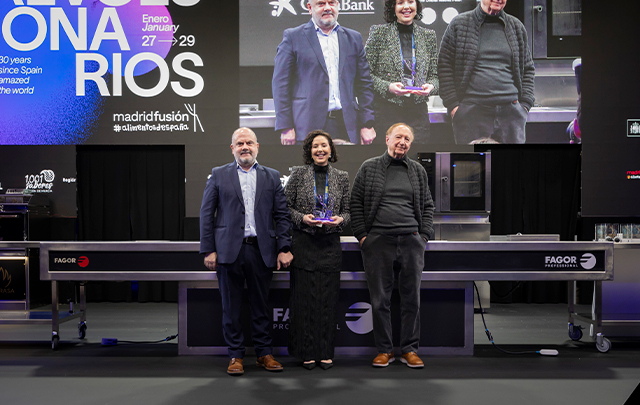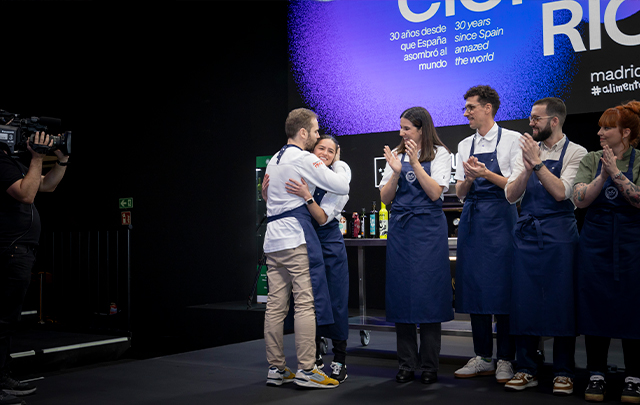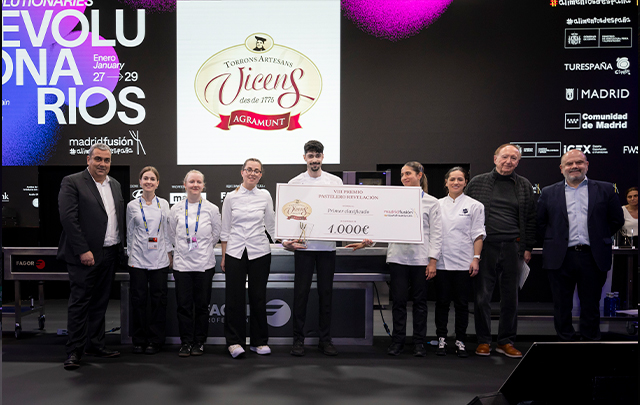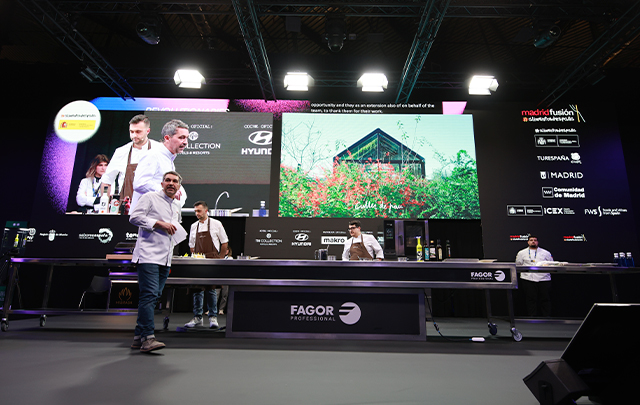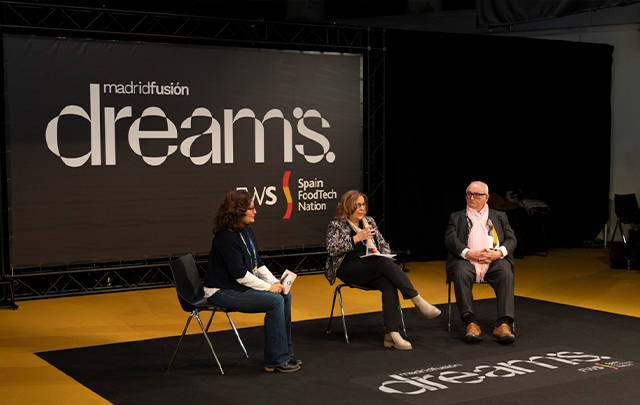News
"We must humanize the kitchen and the dining room through the teams"
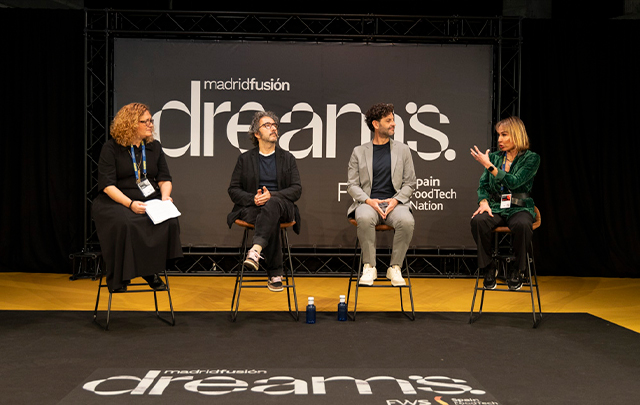
The kitchen is a source of health if we take into account the nutritional focus of the elements and their balance, but it must also be so for the workers who develop their professional careers in this environment
The restaurant is a particularly stressful environment. It is clear to everyone that working conditions in the restaurant industry can be tough and highly stressful, so knowing how to manage all this in a positive way is key to having a healthy working environment. "We have to humanize the kitchen and the dining room through the teams," admits Diego Guerrero, chef at DSTAgE** (Madrid, Spain). "In the restaurant, you and your team are exhausted, and that forces you to stop and think about how to maintain creativity and how to keep the team motivated and not suffering so that they want to continue," he added during a round table on health at the restaurant of Madrid Fusión Alimentos de España. "We have reformulated because the business and the team must be sustainable, but we know that if there is no business, there is no team," he said.
"When they enter the restaurant, you want every customer to have the best experience, and that means tremendous physical and mental effort and strain for the people who work in the restaurant," acknowledged David Seijas, former sommelier at elBulli. Meritxell Obiols, co-founder of GastroCoaching.Food and a specialist in emotional intelligence coaching, agreed: "There are issues that are common to any organization, but when we talk about creating sustainable teams, in addition to good cooking technique and good dining room protocol, we have to treat the teams well, because without that it is not sustainable over time. "You better take good care of your team as a person, but also as a company," the expert said.
When managing a restaurant, as in any team, "there has to be a balance between what you want to do and what is required of you," Diego Guerrero confessed. The same thing happens on a social level, because "we live in a culture of egos, in a moment of self, and our job is not about self, because you are in people's free time, and you have to know how to manage it. It is a job of caring and giving a lot," adds David Seijas. An idea that Guerrero sums up in one sentence: "Everything in a restaurant has to be in balance for it to work.
All of us who enjoy restaurant cuisine look at the plate, but "it's not just about looking at the plate, it's also about the people around it who make the dish," something that "the person in charge of the team has to take care of," says Meritxell Obiols. "Now there is a lot of diversity in the teams, different cultures, countries, values, stages of life and an intergenerational meeting where the needs and expectations are not the same. That's why it's very important to get to know people, to listen, to empathize, to understand, to manage stressful situations, to manage needs," she added.
And in this management of teams and people, it is essential to explain the why of things and the objective being pursued: "What works is to give a reason, a motive or a purpose. And it has to be aligned with you, the team has to be aligned with the same goal as you. There must be a common motivation, says Diego Guerrero, who knows that in his restaurant and in any teamwork, if you communicate well and explain the whys, "they will give their all and be happy. When you achieve that, you have a team feeling".

